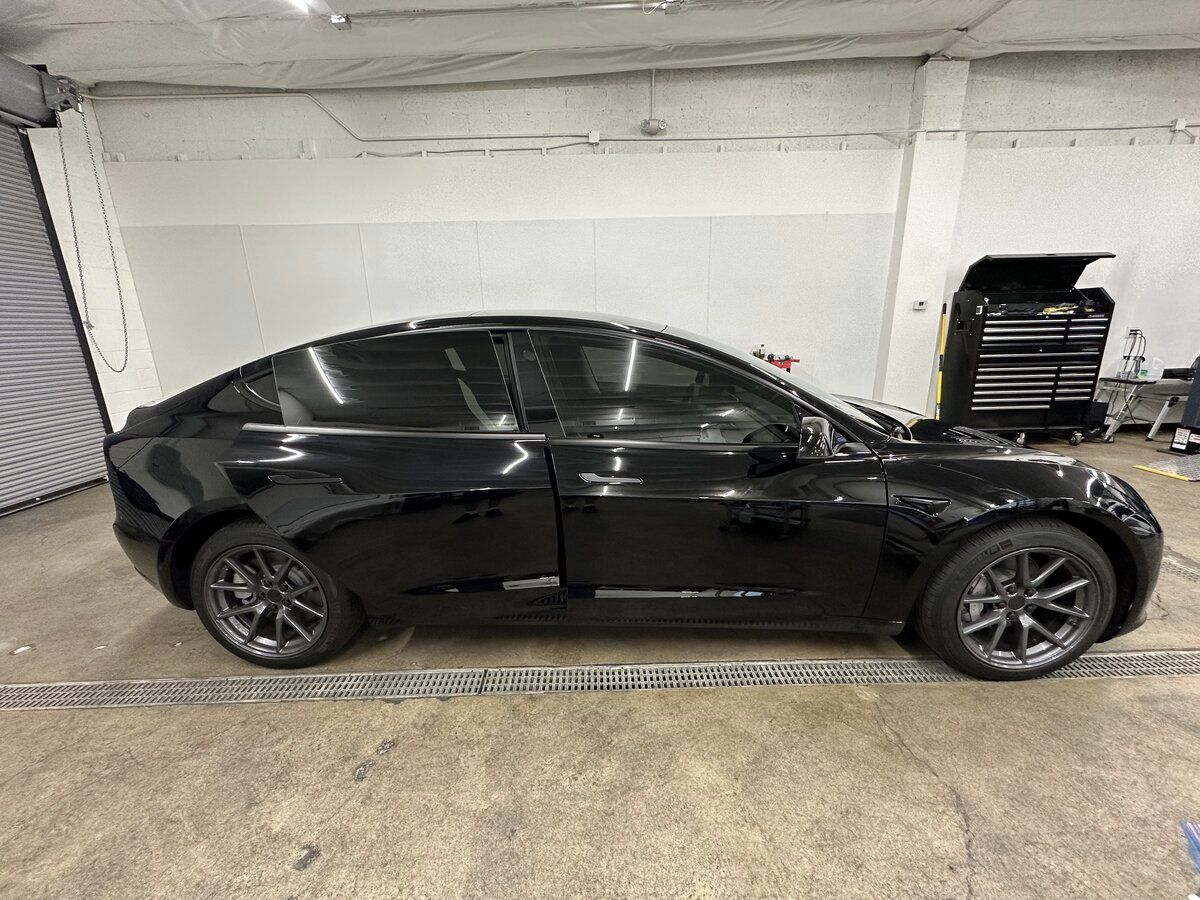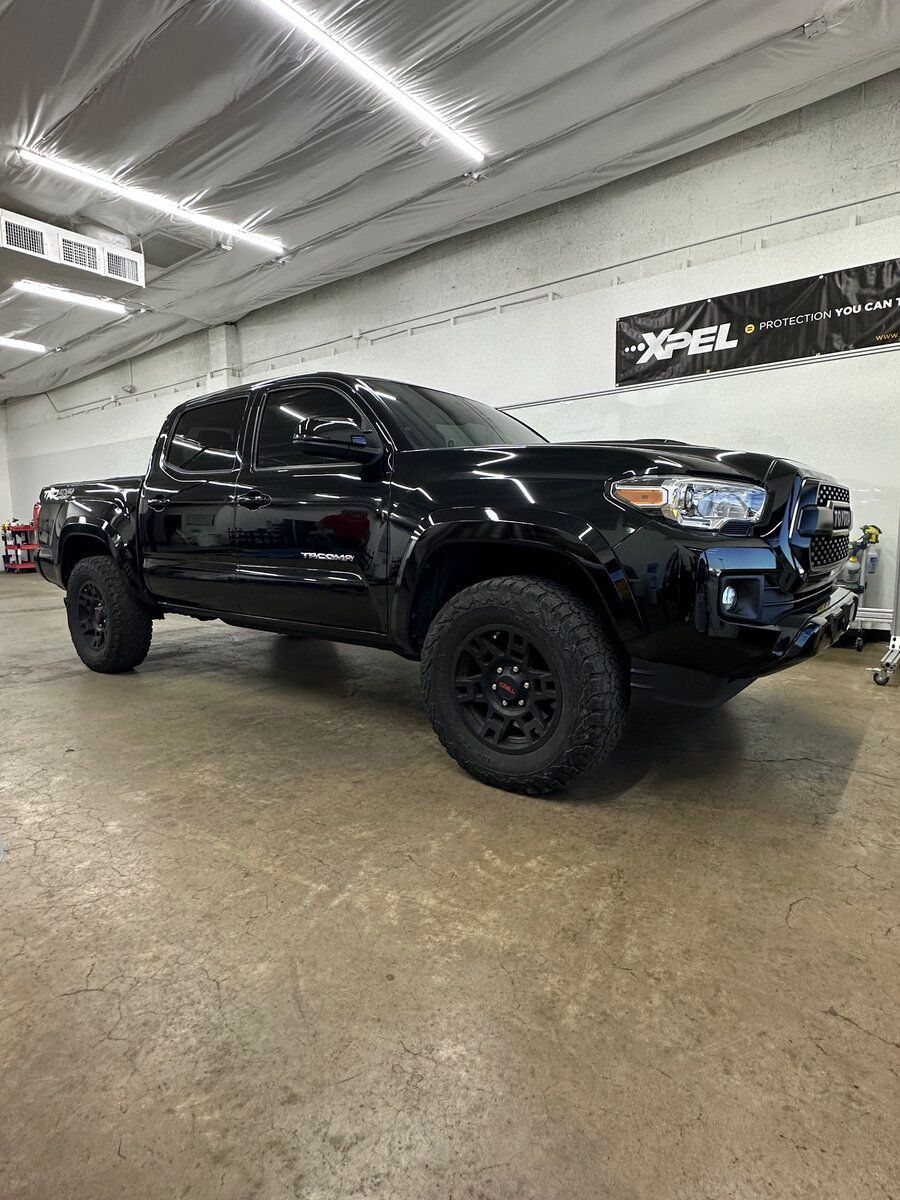Pros and Cons of Considering Automobile Window Tinting
Automobile window tinting has become increasingly popular for various reasons, ranging from aesthetics and privacy to heat reduction and UV protection. However, like any modification to your vehicle, it comes with its own set of pros and cons. In this blog, we'll explore the advantages and disadvantages of automobile window tinting to help you make an informed decision.
Security Benefits of Automobile Window Tinting
When it comes to automobile window tinting, security is one of the key benefits that car owners can enjoy. Window tint films offer an added layer of protection by creating a barrier between the interior of the vehicle and prying eyes from the outside. This increased privacy prevents potential thieves or opportunistic criminals from peering into your car and surveying its contents, reducing the risk of break-ins and theft.
Additionally, high-quality window tint films are designed to make it difficult for others to shatter or break your vehicle's windows. They provide an extra layer of protection against smash-and-grab thefts, where criminals try to quickly break a window and grab valuable items before fleeing. The tinted film reinforces the glass and holds it together even upon impact, making it significantly harder for thieves to gain access to your belongings.
Furthermore, window tinting can help safeguard your personal safety while driving. In the event of an accident or collision that causes your windows to shatter, the tint film helps hold the glass together, minimizing the risk of injury from flying shards. This added safety measure is especially important in situations such as severe weather conditions or accidents involving multiple vehicles.
Comfort and Health Advantages
Automobile window tinting offers several comfort and health advantages that can greatly enhance the driving experience. One of the primary benefits is heat reduction. When sunlight enters a vehicle, it can quickly raise the interior temperature to uncomfortable levels, especially during hot summer months. Window tinting helps to block out a significant amount of heat, reducing the need for excessive air conditioning and creating a more pleasant environment inside the car. This can be particularly beneficial for those living in warmer climates or for individuals who frequently drive long distances.
In addition to heat reduction, window tinting also provides better protection against harmful ultraviolet (UV) rays. Prolonged exposure to UV radiation can lead to various health issues, including skin cancer, premature skin aging, and eye damage. High-quality window films can block up to 99% of UV rays from entering the vehicle, safeguarding both the driver and passengers from these harmful effects. This is especially important for individuals who spend extended periods on the road or have sensitive skin or eyes.
Glare Reduction and UV Protection

Glare from direct sunlight can be incredibly distracting while driving, affecting visibility and potentially jeopardizing safety on the road. However, window tinting effectively reduces glare by filtering out excessive sunlight and minimizing its impact on your line of sight. By reducing glare, drivers experience improved visibility, allowing them to see more clearly and focus on the road ahead. This is especially important in bright, sunny conditions, when the sun's rays can be particularly intense and cause a distracting glare. With the right sun visor, drivers can block out the sun, which can help prevent accidents caused by temporary blindness or obscured vision.
Moreover, along with glare reduction, window tinting provides essential protection against harmful UV radiation. Not only does it block out most of the sun's UV rays, but it also helps to prevent interior fading and damage caused by prolonged exposure to sunlight. This is particularly beneficial for preserving the condition of your car's upholstery, dashboard, and other interior components. By minimizing UV damage, window tinting can help extend the lifespan of these elements, ensuring that your vehicle's interior remains in good condition for years to come.
It's worth noting that, while window tinting offers significant benefits in reducing glare and protecting against UV radiation, it's essential to choose the right tint level according to your local regulations. Some states have specific guidelines regarding the maximum allowable darkness for window tinting. Adhering to these regulations ensures compliance with the law while still reaping the benefits of window tinting.
Environmental and Energy Savings
When it comes to automobile window tinting, one of the significant benefits lies in its potential for environmental and energy savings. Window tint films are designed to reduce the amount of heat entering a vehicle, which can lead to several positive outcomes.
By limiting the heat transfer through car windows, window tinting helps reduce the reliance on air conditioning systems, especially during scorching summer months. This decrease in air conditioning usage translates into lower fuel consumption and decreased emissions, ultimately contributing to a greener environment. But energy-saving benefits aren't limited to just warmer climates; they extend to colder regions as well. During winters, window tint films act as an insulating layer that helps retain heat within the car's cabin. This thermal insulation reduces heat loss through windows and keeps the interior warmer without relying solely on heating systems. As a result, you may find yourself using less energy to warm up your car during chilly mornings or long drives.
Impact on Car Interior Temperature
The intense heat from direct sunlight can penetrate car windows and dramatically raise the temperature inside a vehicle, leading to discomfort during hot weather. This is where window tinting proves its worth by significantly reducing the amount of heat that enters a car's cabin.
Window tint films are designed with materials that have excellent heat rejection properties. They can block a high percentage of solar energy, including infrared and ultraviolet rays, which contribute to the warming effect inside the car. By filtering out these rays, window tinting keeps the interior cooler and more comfortable for both drivers and passengers.
Apart from providing immediate relief from heat buildup, a cooler car interior also has long-term benefits. It lessens deterioration on upholstery and other parts that may result from prolonged exposure to high temperatures. Moreover, it alleviates the discomfort of sitting on hot seats or grabbing a boiling-hot steering wheel, making your driving experience overall more pleasant.
Privacy Enhancement and Legal Considerations

Automobile window tinting offers a range of benefits, one of which is enhanced privacy. Many vehicle owners appreciate the added sense of security and seclusion that window tinting provides. By reducing the visibility into the interior of the car, it becomes more challenging for others to see inside. This can be particularly advantageous when transporting valuables or personal belongings, as it reduces the risk of theft or break-ins. Additionally, window tinting can protect occupants from prying eyes, creating a more comfortable and private driving experience.
However, it's important to consider the legal implications and regulations surrounding window tinting to ensure compliance with local laws. Each jurisdiction has its own guidelines regarding allowable levels of visible light transmission (VLT), which determines how dark the window tint can be. These regulations are in place to maintain road safety by ensuring adequate visibility for drivers and law enforcement officers.
While many drivers value privacy, it's crucial to strike a balance between personal preferences and abiding by the law. Some individuals may wish to push the limits of darkness on their windows for maximum privacy, but doing so can result in fines or even license suspension if caught violating tint regulations. It's crucial to research and understand the specific tinting laws in your area before deciding on the level of darkness you desire.
To comply with legal considerations, professional automotive window tinting service providers are well-versed in local regulations and can offer guidance on choosing the appropriate VLT percentage for your windows. They have expertise in installing tints that meet both aesthetic desires and legal requirements. Moreover, professional technicians use high-quality materials that are designed to be within the acceptable limits set by law.
It's important not to overlook the legal aspects of window tinting, as non-compliance can lead to unwanted consequences such as fines, vehicle inspection failures, or complications during routine traffic stops that may result in further scrutiny or citations. Prioritizing both privacy and adherence to local laws ensures a harmonious balance between personal preference and road safety. While privacy enhancement is a significant advantage of automobile window tinting, it's crucial to consider potential drawbacks and the legal restrictions associated with this modification.
Potential Drawbacks
While window tinting offers numerous benefits, it's important to weigh it against potential drawbacks before making a decision.
- One major consideration is the impact on visibility, particularly at night or in low-light conditions. A darker tint can reduce the amount of light that enters the vehicle, which may make it more challenging to see clearly. This can hinder visibility for both the driver and other road users, potentially increasing the risk of accidents or altercations. It's crucial to strike a balance between desired privacy and maintaining optimal visibility for safe driving.
- Another potential drawback relates to the quality of the tint itself. Low-quality or poorly installed tints may bubble, peel, or discolor over time, diminishing their aesthetic appeal and functionality. This emphasizes the importance of choosing a reputable automotive window tinting service provider that uses high-quality materials and employs skilled technicians who can ensure a proper installation.
By considering both the potential drawbacks and the benefits of window tinting, you can make an informed decision that balances your privacy needs with safety and compliance. It's advisable to consult with experts in the field who can provide guidance on choosing appropriate tints, ensuring quality installation, and complying with relevant laws.
Contact EuroCars Detail for XPEL Window Tinting Service
Experience top-tier protection with EuroCars Detail! Our XPEL Window Tint Films offer the ultimate safeguard for your vehicle's interior, your passengers, and you as the driver. Say goodbye to harmful UV rays, infrared heat, and annoying glare, all while enjoying enhanced privacy. Trust our trained and certified installers to deliver unmatched quality and protection. Elevate your driving experience—choose EuroCars Detail for XPEL Window Tinting. Book now!


